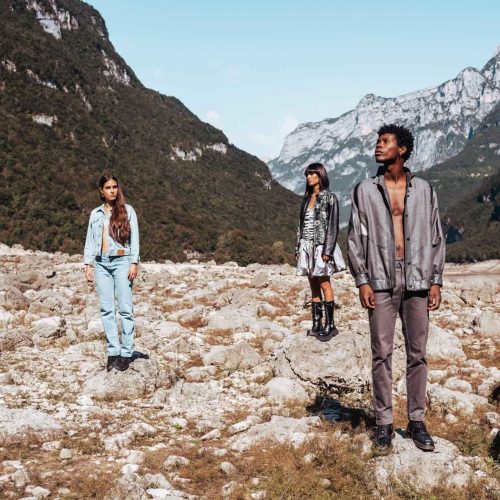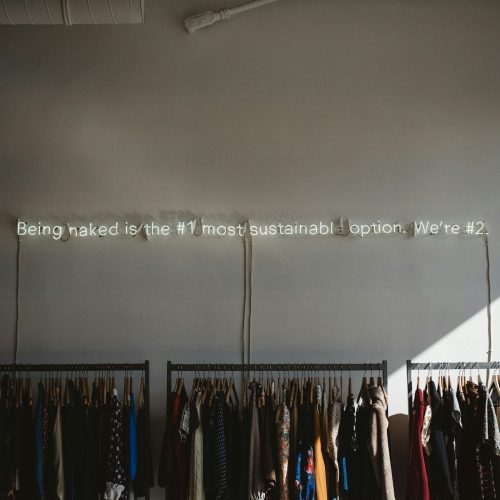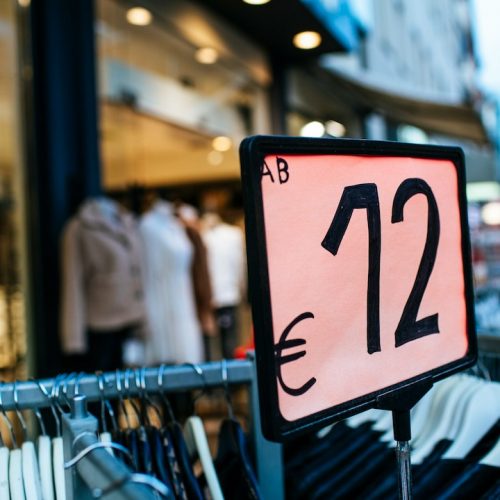Lanius: What’s Behind A Sustainable Fashion Brand
With such a worrisome future ahead of us, it’s easy to see why the concern about the environment is increasing. This awareness is making consumers, especially millennials and Gen Z, more conscious of what they buy and who they buy it from.
According to Nielsen, 73% of consumers would change their habits in order to reduce their environmental impact and 81% of global respondents feel strongly that companies should help improve the environment. A research from NYU Stern’s Center for Sustainable Business revealed that 50% of the consumer packaged goods market’s growth from 2013 to 2018 came from sustainability-marketed products. There are brands, though, that were around when sustainability was anything but “trendy”, and have paved the way for the green companies we see today. One of them is Lanius, a Cologne-based clothing company founded by Claudia Lanius in 1999 when eco-fashion was far from being mainstream. Over the years, they made the history of fair-fashion and contributed to making it a force to be reckoned with, with their high-quality, sustainable, and stunning clothes.
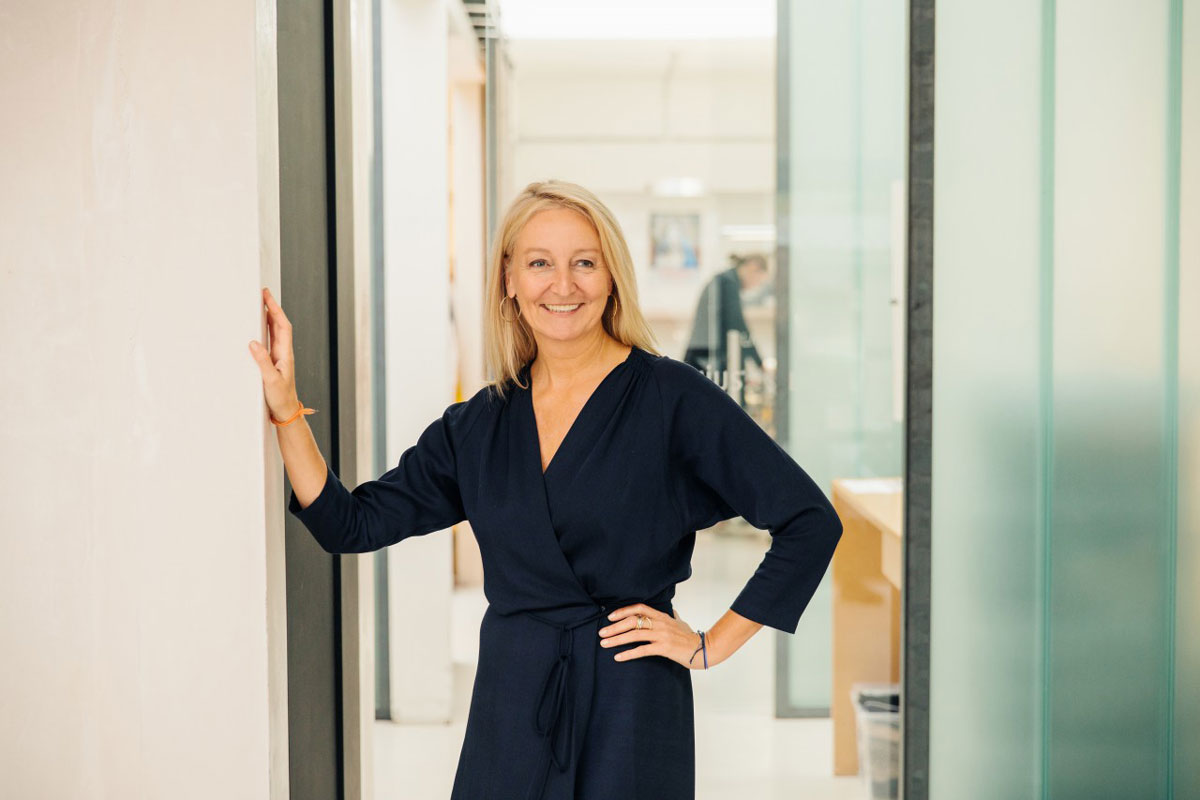
We, at Luxiders, had the pleasure to interview Claudia Lanius herself and ask her about her decades-long experience in the fair fashion industry. Ready for a peek behind the green curtain?
YOUR BRAND WAS FOUNDED 1999, HOW HAS THE SUSTAINABLE FASHION SCENE CHANGED OVER THE COURSE OF THESE 21 YEARS?
CL: In 1999 the sustainable fashion scene in Germany was still very small and we––the pioneers and early founders––were only a few: namely the family owned company Hess Natur, the entrepreneur Britta Steilmann and then, of course, also LANIUS.
A lot has happened since then. While in the first years the interest in sustainable clothing was low, awareness for sustainability in fashion rose as rapidly as it did in the food, beauty and automotive industries. Due to various scandals people gained sudden awareness of what they were eating or treating their skin with. Climate change made societies wake up and look for sustainable solutions. And tragedies such as the collapse of the Rana Plaza factory building in Bangladesh raised sudden awareness of the shocking conditions in textile factories.
In the meantime, sustainable fashion has simply become more beautiful and the range on offer has increased. And, spoken from a supplier’s perspective, the development of textiles has changed a lot, too. A lot of research has been carried out in recent years in search of new materials and resource-saving manufacturing methods. A good example is the Lenzing company, that was able to establish the versatile fiber TENCEL (TM) on the market and is in general very committed to developing sustainable and chemical-free production processes.
WHAT MADE THE FOUNDER, CLAUDIA LANIUS, DECIDE TO OPEN LANIUS?
CL: I love fashion and my heart beats for textiles––after all, I started as a seamstress myself. Yet my motivation has always been to make fashion with a clear conscience. My first company focused entirely on the sustainable natural fiber hemp and I quickly won over Hess Natur as my first major customer. After a few years I founded LANIUS, a company that completely encompasses my vision of fashion, which is made from ecological materials, which is in harmony with fair working conditions, and which combines fine materials with feminine silhouettes and a perfect fit. Since then, I am developing a feminine collection with LANIUS twice a year for all the women who share these values with me.
DO YOU THINK THAT THE LABEL "SUSTAINABLE" IS AN ASSET TO YOUR BRAND?
CL: It certainly is today––although, at the time I founded LANIUS, this wasn’t the case regarding the general perception. Behind our pioneering status in the field of sustainable womenswear stands, that we can really say retrospectively, a lot of educational work, persistent passion to break up the prevailing framework conditions within the fashion industry, and the constant effort of raising awareness amongst possible customers. Today, when it is increasingly a matter of good taste to think and act sustainable, the label has finally become an added benefit.
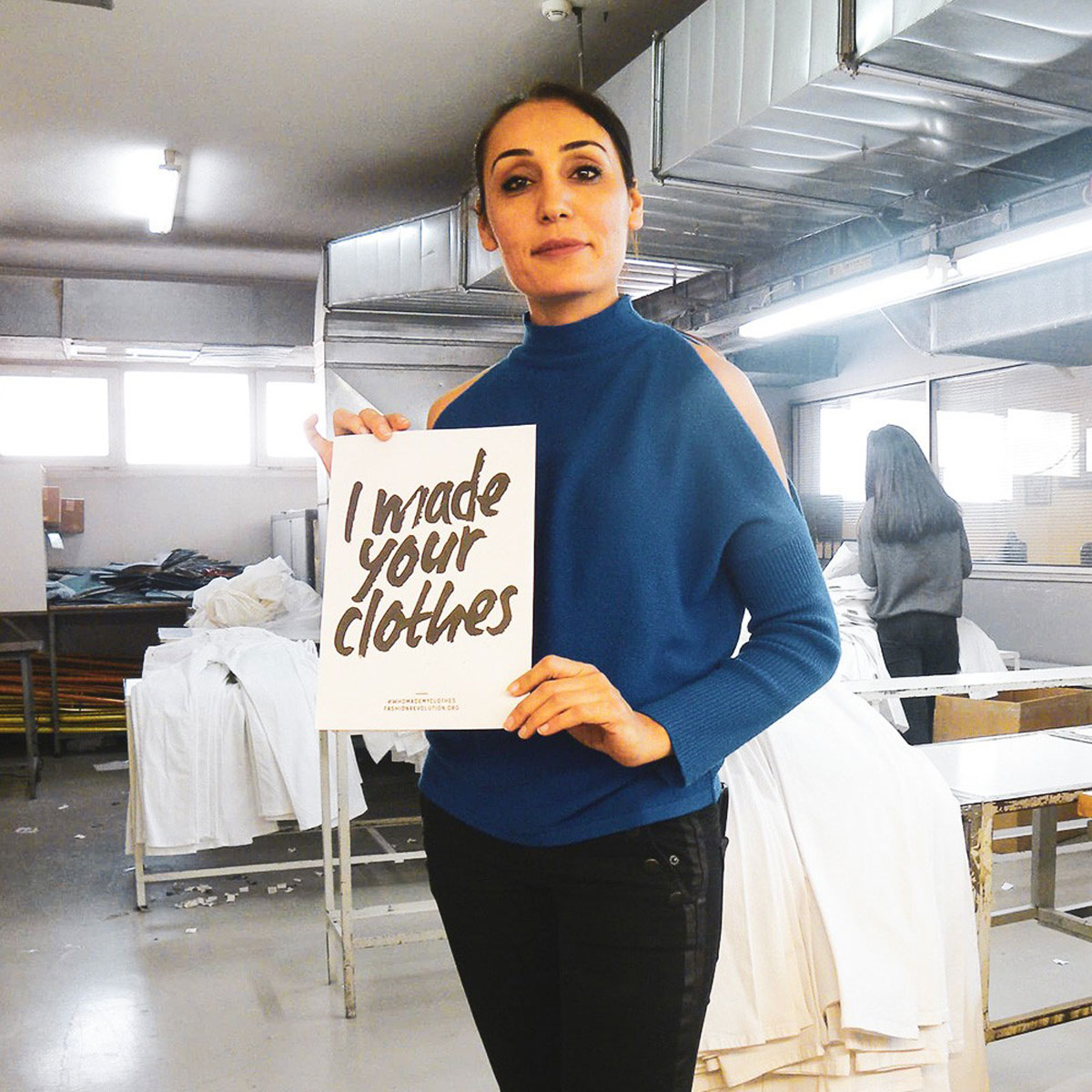
HAS IT BEEN HARD IN YOUR EXPERIENCE TO RUN A SUSTAINABLE BUSINESS?
CL: Yes, you can say that. The first few years after founding were quite sobering. I had started with this strong belief in how to produce ethically and sustainably and had to make the sudden experience that, for these beliefs, I was looked at obliquely by many buyers from the conventional business. They automatically sorted me into the back-then very unfashionable eco-niche. As a young entrepreneur committed to fashion, that was extremely hurtful and frustrating.
Fortunately, the opposite is true today: if you include a sustainable area at your trade fair, you will be viewed with respect and the collections will be treated with interest and care. It is all the better that I can say: I have been doing this for 21 years, not as a “free rider” but as one of the pioneers, following my firm belief that it must be part of a company's DNA to produce in a socially and ecologically sustainable manner along the entire value chain. It is, by the way, a great advantage to have been in this area for so long and to own really well-founded knowledge on the complex issue of sustainability.
HOW YOU SEE THE FUTURE OF THE SUSTAINABLE FASHION INDUSTRY?
CL: The future of fashion is sustainable––there is simply no way around it. And that is not just a perceived necessity, a lot is happening in the industry on a large scale: conventional brands are slowly following up regarding sustainable production strategies. I believe their future task is to learn, to regard sustainability not as a trend but as an absolute must that has to be integrated deeply into the company's DNA and then executed along their entire supply chains.

+ Words: Roberta Fabbrocino, Contributor at Luxiders Magazine
Roberta Fabbrocino is a writer and an environmentalist who loves sharing stories about all things sustainability. She runs @mosclothingsubscription, an eco-friendly personal styling service, and creates content for green brands.
Instagram: @naturallybree


